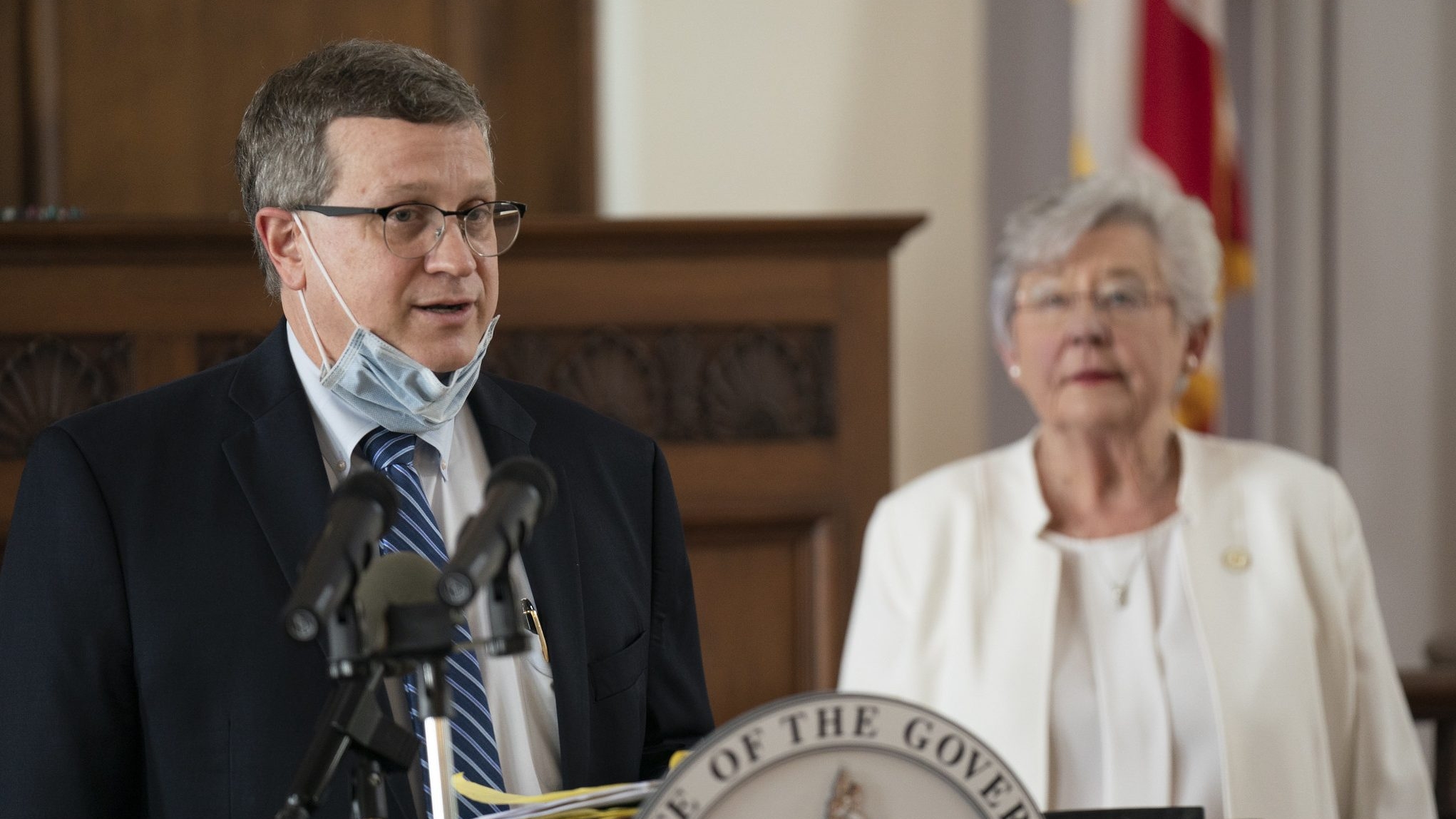During the last fourteen months the nation, the state of Alabama, and the entire world for that matter experienced an infectious disease pandemic on a scale that we had only read about in historical accounts. The COVID-19 global pandemic was thankfully not the 1919 Spanish flu; but it, and the public health orders meant to fight it, wrecked economies and entire industries. The Alabama Legislature is looking back on what went right and what went wrong in the state’s handling of the pandemic. Sen. Tom Whatley, R-Auburn, has introduced legislation that would reduce the powers of the State Public Health Officer and give legislators some oversight on future orders during a protracted public health emergency.
On Wednesday, the House Health Committee voted to give Whatley’s Senate Bill 97 a favorable report. The bill is being carried in the Alabama House by state Rep. Mike Holmes, R-Wetumpka.
Many business owners have been critical of the public health orders that closed their businesses for weeks and limited their capacities for months. Holmes said that the people are telling legislators that they want input in these decisions.
“We, as legislators, are the branch of government that is closest to the people,” Holmes said. The substitute version of SB. “The intent was to make the people feel like they were involved.”
“This bill is intended to spread some of that responsibility out some in order to get the legislature involved in this system,” Holmes explained.
Former State Sen. Phil Williams, R-Rainbow City, is now the Senior Policy Advisor for the influential Alabama Policy Institute.
“API has keyed in on this,” former Sen. Williams said. “SB97 is one of the most important bills in the entire legislative session.”
Williams explained that legislators are the branch of government that the people of Alabama see at the hardware store, at church, and at local restaurants.
Williams said that SB97 would restore the balance of power of Alabama state government.
The House Health Committee was meeting in House Chambers. Rep. Paul Lee, R-Dothan, Chairs the committee.
Rep. Pebblin Warren, D-Tuskegee expressed some concerns over repealing the powers of municipalities to issue their own orders regarding vaccinations.
“We need to hear from the League of Municipalities,” Warren said.
“It disturbs me that when we get a woman governor, we as a legislature come in, and try to strip her of legislative power,” Warren added.
According to the synopsis of the latest substitute version of the bill, “Under existing law, a state of emergency may be declared by the Governor by proclamation or by the Legislature by joint resolution. A state of emergency terminates after 60 days unless extended by proclamation of the Governor or joint resolution of the Legislature. This bill would provide that the proclamation or joint resolution declaring a state of emergency must describe the basis for justifying the state of emergency. This bill would provide that a state of emergency terminates after 45 days unless extended and would provide that the Governor’s power to extend a state of emergency would be subject to the Legislature’s power to terminate the state of emergency.”
“This bill would provide that the President Pro Tempore of the Senate, in addition to the Lieutenant Governor and Speaker of the House of Representatives, may request in writing that the Governor call the Legislature into special session upon proclamation of a state of emergency. This bill would require the proclamation or joint resolution proclaiming a state of emergency to define in writing the basis upon which the state of emergency is justified and would limit the scope of the Governor’s emergency powers to actions that bear a reasonable relationship to preventing or mitigating the cited emergency.”
“This bill would require the Governor, during a state public health emergency, to consult with members of the Legislative Council before issuing or approving any directive that would restrict, limit, or otherwise burden the conduct of private citizens or businesses. This bill would provide that an order or directive issued by the State Health Officer relating to the outbreak of a disease or pandemic has the full force and effect of law once it is approved by the Governor and a copy is filed with the Office of the Secretary of State.”
“Also under existing law, municipalities have the power to adopt and enforce ordinances to compel vaccinations in order to prevent the introduction or spread of disease. This bill would repeal the law authorizing municipalities to compel vaccinations.”
SB97 is not on the House special order calendar for Tuesday. This means that for it to pass, the House Rules Committee has to place it on a special order calendar on either Thursday or May 17, the last two days of the session. Since the House has substituted the bill, the bill would still have to go back to the Alabama Senate for concurrence.





















































